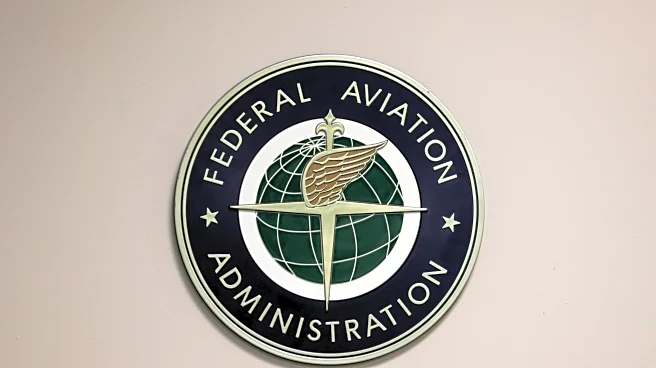What's Happening?
Governor Kay Ivey has declined to call a special session of the Alabama Legislature to address the suspension of Supplemental Nutrition Assistance Program (SNAP) benefits amid the federal government shutdown. Alabama Senate Democrats urged Ivey to convene
a session to ensure the continuation of SNAP benefits, but Ivey's office stated that SNAP is a federally funded program, and the state lacks the resources to cover the benefits. Ivey expressed hope that U.S. Senate Democrats would work to reopen the federal government, emphasizing the state's inability to assume federal responsibilities.
Why It's Important?
The suspension of SNAP benefits due to the federal shutdown has significant implications for Alabama's residents, particularly the 750,000 households relying on this assistance. The lack of state intervention highlights the challenges faced by states in addressing federal program disruptions. Ivey's decision not to call a special session underscores the limitations of state resources and the reliance on federal funding for essential services. The situation raises concerns about food security and economic stability for vulnerable populations, as well as the impact on local businesses dependent on SNAP transactions.
What's Next?
As the federal shutdown continues, the pressure on Alabama's government to address the SNAP suspension will likely increase. Senate Democrats may continue to advocate for state intervention, while Ivey's administration focuses on urging federal action. The resolution of the shutdown will be critical in restoring SNAP benefits and alleviating the economic strain on affected households and businesses. The broader political dynamics between state and federal governments will be influenced by the handling of this crisis.
Beyond the Headlines
The SNAP suspension amid the federal shutdown highlights the complexities of state-federal relations and the challenges of managing essential services during political impasses. Ivey's decision reflects the broader issue of state dependency on federal funding for social programs and the limitations of state-level intervention. The situation underscores the need for effective collaboration between state and federal governments to ensure the continuity of critical services and support for vulnerable populations.
















